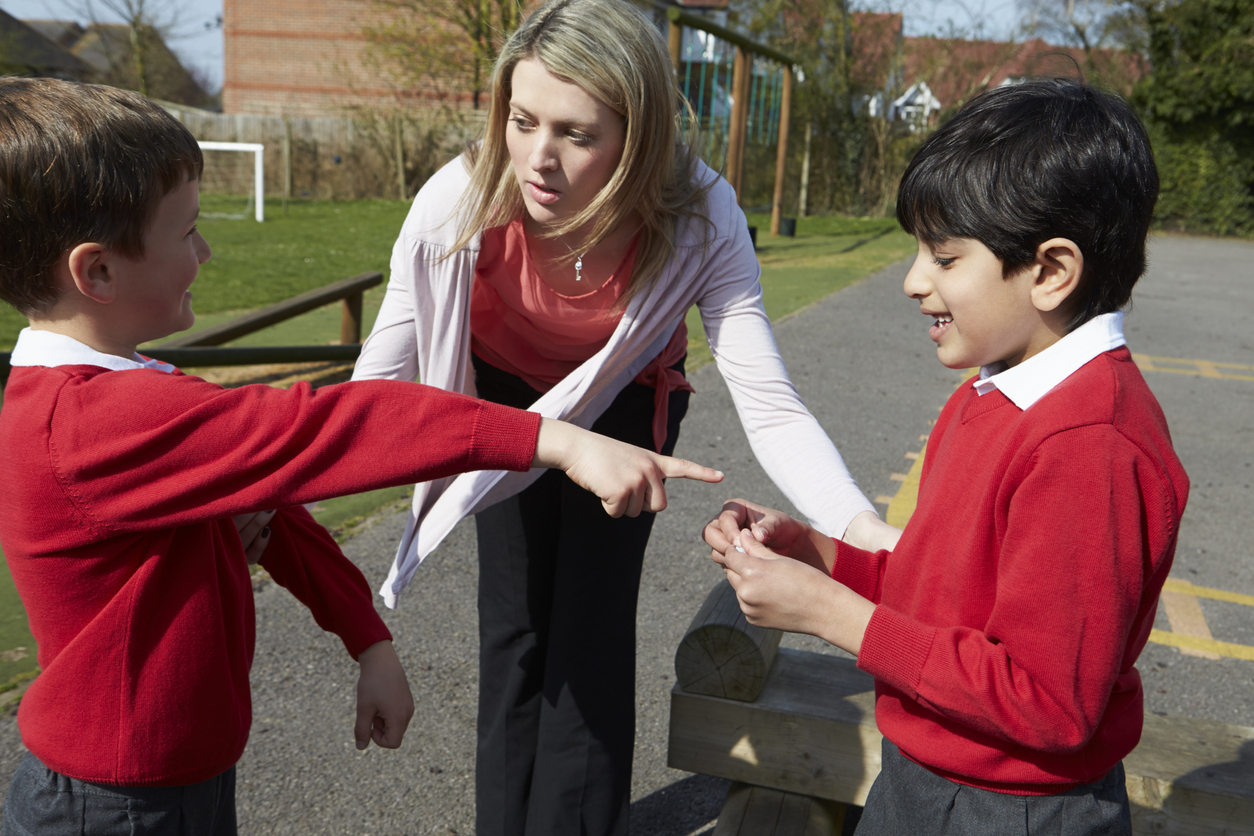Resilience, integrity, and the ability to effectively self-advocate are all key to your child’s success. Unfortunately, these aren’t inherited traits. For most people, they are gradually and thoughtfully honed through adversity, conflict, and stress. Although it’s perfectly normal to want to nurture your kids, letting them navigate trials on their own teaches them more. This is certainly the case when it comes to managing stress and conflict at school. While you might be tempted to intervene when non-emergencies arise, doing so could be cheating your child out of invaluable learning opportunities.
Self-Advocacy and Why It Matters
You won’t always be there to speak for and negotiate for your kids. More importantly, there will invariably come a time when you don’t want to. The sooner kids learn to speak out for themselves in respectful, effective ways, the sooner they confidently make decisions, pursue goals, and achieve them. When parents always intercede, kids never learn to self-advocate. Moreover, they eventually become teens and adults with no experience in dealing with high-stress situations. Thus, a limited ability to take a thoughtful approach to problem-solving. If you reliably step in for your kids every time, they’ll always rely on you to do so.
Resilience Through Adversity
Much of what we accomplish in life occurs against all odds. In fact, the very best of our accomplishments are nearly always the result of doggedly swimming upstream. Kids who are allowed to experience conflict and move on from it aren’t easily shaken when things don’t go their way. As parents, we want our children to have the best of everything, and to live lives defined by positive experiences. This, however, is hardly reality for anyone. Conflict, as unpleasant as it may be, strengthens and hones the will and resolve young children. When they set out to pursue their goals and dreams, kids who’ve dealt with conflict on their own won’t be sidelined by minor challenges. In fact, most won’t be sidelined by larger ones.
The Connection Between Stress, Conflict, and Responsibility
Greatness always comes with responsibility. In fact, countless high-achievers and well-known leaders have asserted that the level of responsibility a person is willing to accept ultimately determines the level of greatness they’re able to achieve. True, courageous leaders recognize when they’re accountable, and take steps to fix the problems. Even if your kids aren’t planning to place a future bid for a prestigious role in the White House, teaching them accountability early on is a key part of developing a strong, resilient, and ultimately impressive character.
When parents intervene on behalf of their kids during in-school conflicts, it often sends the wrong message. Young kids often perceive conflict as being clearly divided between right and wrong, rather than having multiple gray areas. Kids use the outcomes of conflicts to determine who was right and who was wrong, rather than the details. At Tenney School, we believe that having all parties engage in calm, thoughtful discussions about their feelings, actions, and the ensuing consequences helps kids get a clearer picture of how their statements and actions affect both others and themselves.
What You Can Do to Help Your Kids Navigate Challenging Circumstances
Help kids deal with social conflict and stress by encouraging them to calm down before further analyzing or discussing their problems. This is a stress management technique that works well for people of all ages. Go for a long walk together, take a swim, or engage in any other enjoyable form of escapism. Encourage your child to try deep breathing, slow counting, or other self-calming techniques. When children are ready to talk about their concerns calmly, have them detail their conflict to you. Ask them to determine what started the conflict. Ask them to define their role in the event or conversation in question. Finally, ask them what they might do to prevent a similar event from occurring in the future.
Teach Your Child to Manage Stress and Conflict at School
We recognize that there are times when parents need to intervene on behalf of their children. Sometimes children find themselves in positions where they aren’t ready to advocate for themselves, and in situations where they shouldn’t have to. However, for all non-urgent issues, it’s generally best to let kids feel their own way out of problems. The all-around unpleasantness of conflict management makes kids more thoughtful about how they approach others.
When conflicts arise between our students, or between our students and staff at Tenny School, our goal is to make the most of these important learning opportunities. We’re committed to leading, guiding, and teaching our students so they’re sufficiently resilient for greeting the common challenges of life. Our approach encourages self-responsibility, fosters good communication, and instills important values that our students can benefit from both now and well into the future. If you have questions about our conflict management approach or want to know more about our mission, our curriculum, or our overarching values, get in touch with us today.


